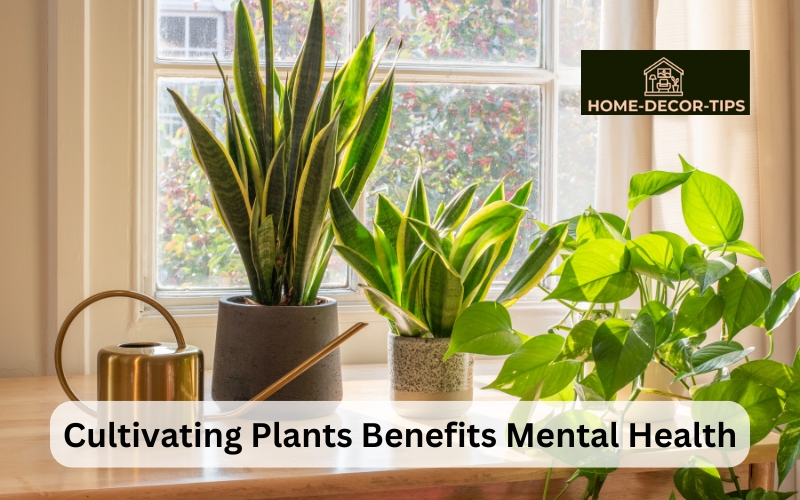How Cultivating Plants Benefits Mental Health

In recent years, the therapeutic benefits of gardening and cultivating plants have garnered increasing attention from mental health professionals and researchers. Engaging in gardening activities, whether indoors or outdoors, has been shown to have profound positive effects on mental well-being, providing a natural and accessible way to promote emotional resilience and alleviate symptoms of stress, anxiety, and depression. Here are several ways in which cultivating plants can benefit mental health:
Stress Reduction:
Spending time in nature and caring for plants has a calming effect on the mind and body, helping to reduce stress levels and promote relaxation. The rhythmic tasks involved in gardening, such as watering, weeding, and pruning, can induce a state of mindfulness, allowing individuals to focus on the present moment and temporarily escape from worries and stressors. The sights, sounds, and smells of the natural environment further contribute to stress reduction, promoting a sense of tranquility and well-being.
Mood Enhancement:
Gardening has been shown to elevate mood and increase feelings of happiness and satisfaction. The act of nurturing plants and watching them grow can evoke a sense of accomplishment and pride, boosting self-esteem and confidence. Additionally, exposure to sunlight and fresh air during outdoor gardening activities stimulates the production of serotonin, a neurotransmitter that regulates mood and promotes feelings of happiness and well-being. The beauty and diversity of plants also provide sensory stimulation and aesthetic enjoyment, enhancing mood and emotional resilience.
Connection to Nature:
Cultivating plants fosters a deeper connection to the natural world, promoting feelings of awe, wonder, and appreciation for the beauty and complexity of the environment. Engaging with plants on a regular basis encourages individuals to develop a sense of stewardship and responsibility for the Earth, fostering a sense of purpose and connection to something larger than oneself. This sense of connectedness to nature has been linked to improved mental health outcomes, including reduced symptoms of anxiety, depression, and stress.
Social Interaction:
Gardening can be a social activity that promotes social interaction and community engagement, providing opportunities for individuals to connect with others who share a passion for plants and gardening. Whether participating in community gardens, attending gardening clubs or workshops, or simply chatting with neighbors about gardening tips and techniques, cultivating plants can facilitate meaningful social connections and foster a sense of belonging and camaraderie. Social support networks play a crucial role in promoting mental health and resilience, providing emotional support, companionship, and a sense of belonging.
Sense of Purpose:
Gardening provides individuals with a sense of purpose and meaning, as caring for plants requires dedication, patience, and commitment. Watching plants grow and thrive under one’s care can instill a sense of pride and accomplishment, reinforcing feelings of self-worth and fulfillment. For individuals struggling with mental health challenges, cultivating plants can provide a source of motivation and purpose, serving as a therapeutic outlet for channeling energy and emotions in a positive and productive manner.
Physical Exercise:
Gardening is a form of physical activity that offers numerous health benefits, including improved cardiovascular health, strength, flexibility, and coordination. Engaging in activities such as digging, planting, and weeding can provide a moderate-intensity workout that promotes physical fitness and overall well-being. Regular physical exercise has been shown to have a positive impact on mental health, reducing symptoms of anxiety and depression and enhancing cognitive function and resilience.
In conclusion, cultivating plants offers a myriad of mental health benefits, ranging from stress reduction and mood enhancement to fostering a sense of connection to nature, social interaction, and a sense of purpose. Whether tending to a small indoor plant or maintaining a thriving garden, individuals can reap the rewards of gardening in terms of improved emotional well-being and resilience. By incorporating gardening activities into daily life, individuals can nurture their mental health and cultivate a sense of vitality, balance, and harmony with the natural world.




